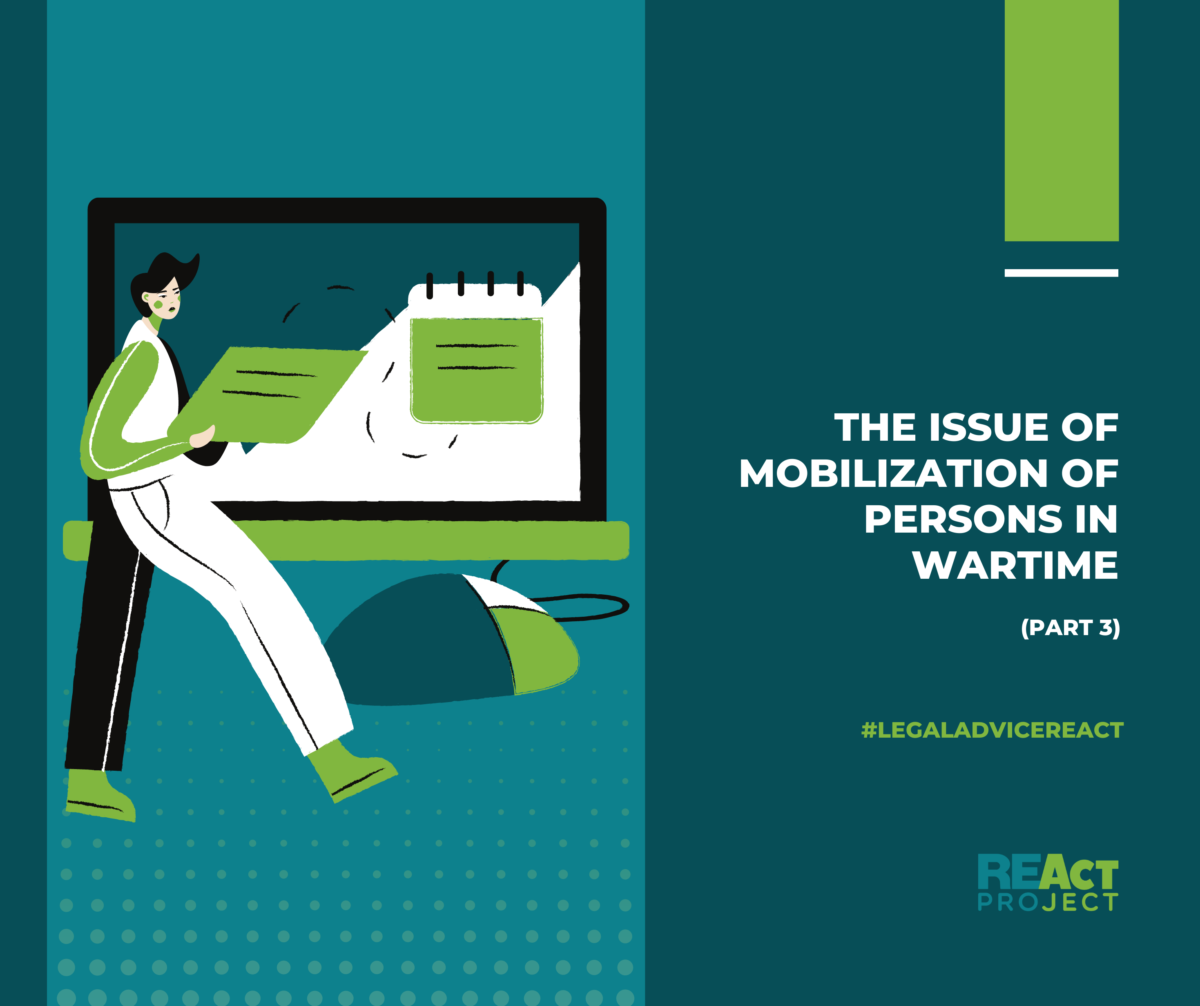Previous publications have addressed the issues that some REAct clients have had regarding new situations of rights violations, given the circumstances of the state of war, that did not exist in peacetime.
There were cases of violations related to various stages of the mobilization process, ranging from illegal detention of clients by the military, coercion to receive subpoenas that were served improperly, to attempts to ignore the objective state of health of community representatives. As already mentioned, not all representatives of key communities can, due to their state of health, take part in hostilities, because there are cases when the state of health makes a person unfit for a significant load, including during military service, while there are persons who are not suitable for military service at all, and there are others who are not suitable for it in peacetime, but are only partially suitable in wartime.
In the previous publication, information was considered about typical health conditions that are relevant for such representatives of key communities as PLHIV, PLTB, PWID, OST patients who need regular treatment; it was analyzed how they affect the recognition of a person’s suitability for mobilization, according to the established regulatory and legal conditions.
Today we will analyze what one needs to know and how to act in order to ensure that the rights of a person who belongs to key communities and undergoes MMC are respected.
It should be noted right away that there is a significant number of community representatives who expressed a voluntary desire to defend the state in the ranks of the Armed Forces, regardless of the state of their health, taking personal participation in combat operations. This was especially applied to people living with HIV. Some of them, after a long stay in difficult conditions on the front line, unfortunately, ended up in military hospitals, due to significant deterioration of their health, where they were commissioned due to health conditions. Another part of the community representatives, understanding their condition and the need for regular treatment, hoped that their health condition would be taken into account by the MMC during mobilization activities.
But, unfortunately, different situations arise, for example, when representatives of local MMCs, especially those who have a narrow and conservative vision of the real needs of persons passing the commission, for access to treatment. So, for example, when a person with a drug addiction who has corresponding mental disorders is told that in the army he will be quickly cured of “this stupidity”, or a trans* woman that she is limited in her suitability for military service in wartime, and her condition is a partial mental disorder. Or at all, they refuse to accept supporting documents for consideration, calling them some kind of unimportant paper junk.
What should community representatives do to ensure their rights and interests during the MMC? It is necessary to contact medical institutions or doctors, according to the relevant type of illness, in a timely manner, even before passing the MMC, and obtain current certificates confirming the state of health, indicating established diagnoses and medical conclusions. Be sure to make copies of them for yourself as well.
Before coming to the territorial recruitment and social support center (TRC and SS) on the basis of which the person will undergo the MMC, it is advisable to prepare a statement addressed to the head of the relevant recruitment center, in which it should be noted that such a person has the following diseases (describe and list each one with an indication of the established diagnosis and the corresponding supporting document (conclusion, references), which are submitted for consideration at the MMC). This should be done both to confirm the person’s state of health and the very fact of the person’s submission of such supporting documents to the MMC on the day of the application, in order to exclude possible conflicting issues in the future. A short text of the application is written, and below it must be given a list of supporting documents provided by the person, the name of each of which must be described separately, as a corresponding appendix to the application. The application itself must be prepared in 2 copies (one is submitted, and the other remains with the person with the appropriate mark of TRC and SS about acceptance).
If the doctors of the MMC ignore the medical documents submitted by the person, one can declare disagreement with the actions and conclusion of the local MMC, and demand a referral for passing the MMC of a higher level (regional) – i.e. commission If this is refused, the person can write a complaint independently to the higher-level MMC within 10 days. As a result of consideration of such an application, the higher-level MMC must make a decision either to review the conclusion of the previous MMC or to finally accept the conclusion of the local MMC, which the mobilizing person passed. In any case, a person has the right to challenge the conclusion of the MMC by applying it to the court. At the moment, there are already cases of successfully challenging violations of one’s right to health during a medical examination, with recognition of the person’s special needs for treatment and cancellation of the contested medical examination conclusion.


